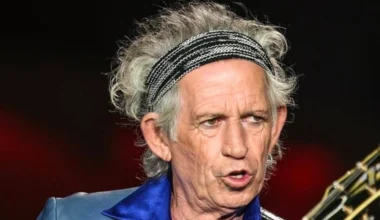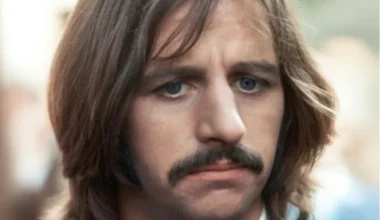David Bowie was a master of channeling darkness into his art. Throughout his career, he faced personal struggles, often using them as fuel for creative expression. However, there was one period of his life when even Bowie struggled to maintain his usual professionalism.
While performing in a Broadway production of The Elephant Man, he was devastated by the murder of his friend John Lennon. The loss hit Bowie hard, and despite his efforts, the performances immediately following Lennon’s death were some of the most difficult of his career.
Bowie was no stranger to darkness. His alter ego, ‘The Thin White Duke,’ which emerged during a drug-fueled period in his life, was a reflection of his inner turmoil. He had previously made shocking statements, like when he suggested that Adolf Hitler could have been a rock star.
But through all his struggles, Bowie turned his pain into art, never shying away from exploring the darker side of human nature in his music. Even as he faced his own mortality while recording Blackstar, Bowie continued to push boundaries, creating an album that balanced uncertainty with the determination to keep going.
Bowie’s bravery in the face of personal tragedy was not something new to him. He had long drawn inspiration from his idols, particularly John Lennon. Lennon, who had revolutionized music with his work in The Beatles, and later with his boundary-pushing solo career, was someone Bowie both admired and called a friend. Lennon’s approach to music—blending creativity with a desire to experiment—deeply influenced Bowie throughout his own career.
Lennon’s murder in 1980 felt like a family loss for many, including Bowie. The suddenness of it made time stand still for Bowie, who was in New York at the time.
In an interview with Rolling Stone, Bowie admitted that the performances after Lennon’s death were some of the worst he’d ever given. “A whole piece of my life seemed to be taken away,” he said. “A whole reason for me being a singer and a songwriter had been removed. It was almost like a warning.”
Though he struggled in the immediate aftermath of Lennon’s death, Bowie carried Lennon’s influence with him for the rest of his career. He honored Lennon’s memory not only in tributes but also in his continual reinvention of himself.
Bowie’s album Let’s Dance was one example where he transformed himself into a mainstream pop star while keeping the spirit of innovation Lennon had inspired alive. Even when an album like Never Let Me Down fell short, Bowie’s commitment to creativity was unwavering.
For Bowie, Lennon’s death was not the end of his influence on music. Even after The Beatles Anthology was released, and a few of Lennon’s unfinished demos were made public, Lennon’s legacy lived on.
His willingness to push the limits of what pop music could be continues to inspire countless musicians today, just as it did for Bowie during his lifetime.







